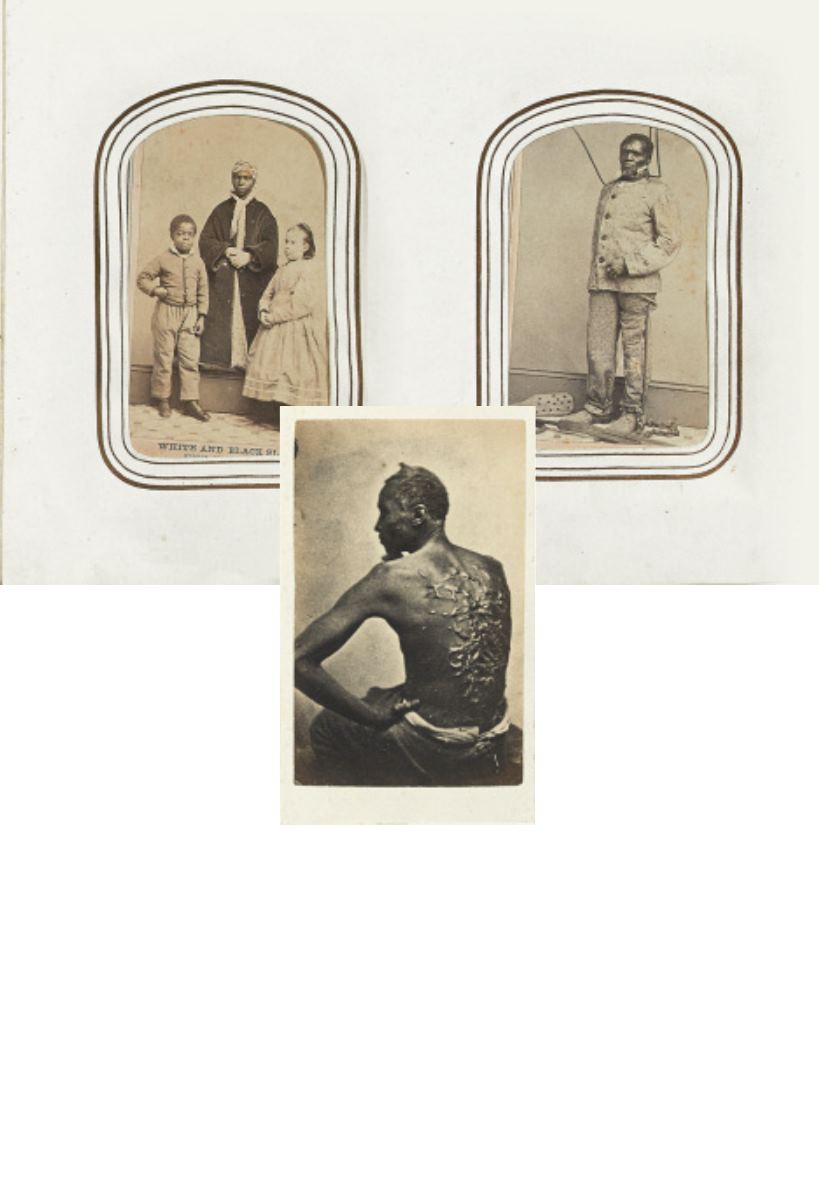

Also here is another infamous image of an abused slave, that of Wilson Chin, “a branded slave from
Louisiana.” Chin’s forehead was branded with his master’s initials; he wears a complex iron collar
around his neck, the prongs sticking out meant to impede any escape through the forest underbrush.
The latter and the following carte-de-visites of “Rebecca, Charlie and Rosa,” “Rebecca,” “Isaac and
Rosa,” and “White and Black Slaves from New Orleans,” all bear printed captions beneath the
images. These were part of a larger series issued by the Kimball studio in New York, and were sold
during and after the Civil War to raise funds for the Freedmen’s Bureau. The album also contains a
fine collection of Civil War generals: Halleck, Burnside, Meade, Banks, Butler, Hunter, Rosecrans,
Foster, Fremont, Hooker, Wool, Grant, Commodore Foote, and Captain Tilden (with an ink note
“buried in Stoughton”). There are two images here that seem somewhat out of place, given the other
images in the album: Jefferson Davis and Stonewall Jackson. Finally, there is a rare composite photo-
graph of the actors and actresses of “The Boston Museum Company,” the noted Boston theatrical
ensemble. Of this image, we could find only one other example at Harvard’s Houghton Library
Theatre Collection. The last portrait in the album is that of Dr. Henry A. Tucker of Brooklyn, a
“Clairvoyant Medium.”We can only imagine what the Beal family was doing with a spirit medium.










